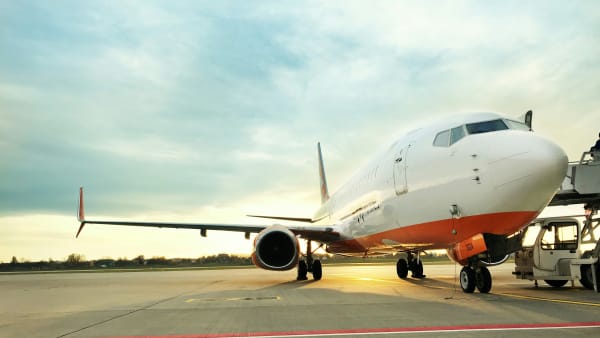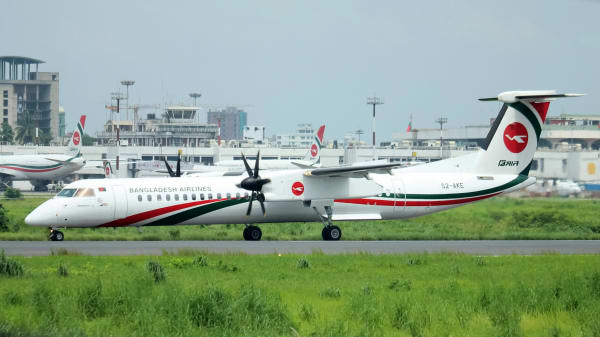Aviation and Climate Change: Challenges and Careers
As the world becomes more aware of climate change, many industries are undergoing significant transformations to lessen their impact on the environment. One such sector facing considerable scrutiny is aviation. As a major contributor to greenhouse gas emissions, the aviation industry is under pressure to innovate and evolve. This article will delve into the connection between aviation and climate change, the challenges facing this sector, and the emerging career opportunities in sustainable aviation.
The Link Between Aviation and Climate Change
Aviation accounts for about 2.4% of the world's total carbon dioxide (CO2) emissions, and this percentage is expected to increase with the expanding global economy. There are two primary ways aviation contributes to climate change:
Carbon dioxide emissions: The combustion of jet fuel in airplane engines results in the release of CO2, a potent greenhouse gas.
Contrails: These are ice clouds formed by aircraft engine exhaust at high altitudes. They can sometimes persist and spread, creating a thin, high-altitude cloud layer that can amplify global warming.
Challenges in Reducing Aviation's Climate Impact
While awareness about aviation’s contribution to global warming is rising, mitigating its environmental impact presents significant hurdles:
Technological Limitations: Unlike other sectors where renewable energy sources can replace fossil fuels, aviation relies significantly on the energy density of jet fuel. Currently, there are no viable alternatives that can give the same energy output without compromising safety or performance.
Economic Factors: While more efficient aircraft designs and operational methods could reduce fuel consumption, these require substantial investment. Therefore, balancing economic viability with environmental responsibility can be tricky.
Regulatory Issues: Formulating and enforcing regulations across countries that individually supervise their aviation sectors are complex. International cooperation is essential for these rules to make an effective impact on a global scale.
Career Opportunities in Green Aviation
Despite these challenges, the push toward sustainable aviation opens up various exciting career opportunities. These are not just for engineers and pilots but span across a range of disciplines:
Sustainable Aviation Fuel (SAF) Researchers: SAFs, such as biofuels, are a promising area for reducing aviation's carbon footprint. These professionals research and develop SAFs, improving their efficiency and affordability.
Sustainability Consultants: With airlines looking to become more sustainable, the demand for consultants with expertise in clean aviation strategies is growing. They help airlines reduce environmental impact and comply with emerging regulations.
Aircraft Designers and Engineers: These professionals can look to specialize in designing energy-efficient aircraft and components, such as lightweight materials or wings that reduce drag.
Green Aviation Technologists: The future of aviation may involve innovative technologies not yet conceived. Those interested in drone technology, electric planes, or even spacecraft could find rewarding careers in this space.
The Future of Aviation and Climate Change
The aviation sector's journey towards reducing its climate impact is full of challenges but also ripe with opportunities. Innovative technologies, regulatory measures, and economic incentives will be crucial in designing a sustainable aviation future.
While aviation has its set of unique challenges regarding climate change, it is vital to remember the part it plays in the broader context. It's not only about reducing emissions but embracing a more holistic approach to sustainability, from smarter resource management to better waste disposal.
The intersection of aviation and climate change also holds many career opportunities in an array of disciplines. For professionals passionate about sustainability and aviation, the decades ahead promise a stimulating and rewarding career path.
Awareness, concern, and action on climate change are growing globally, and these are accelerating the push towards sustainable aviation. While this journey will undoubtedly be challenging and complex, it also presents an exciting opportunity for innovation and development. The future of aviation is not only about flying higher and faster but also about doing it responsibly.
"It's not enough to imagine a better future; we need to build it."
Embracing these challenges and opportunities will effectively address the compelling issue of aviation and climate change, creating a greener, more sustainable future ahead. Everyone—consumers, airlines, aircraft manufacturers, regulatory bodies, and governments—has a role to play in this journey. And with collective action, a more sustainable future for aviation is not just possible—it's on the horizon.




